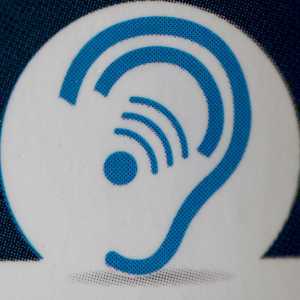
28 Aug Cochlear Implants May Be Superior to Hearing Aids for Some Older Adults
MedicalResearch.com Interview with:

Dr. Wick
Cameron C. Wick, MD
Assistant Professor, Otology/Neurotology
Washington University School of Medicine
St. Louis, MO
MedicalResearch.com: What do you see as the primary message of your findings for the general public?
Response: Older adults not satisfied with their hearing aids achieved clinically meaningful improvement in both hearing and quality of life with a cochlear implant compared to an optimized bilateral hearing aid condition.
MedicalResearch.com: Do you see your findings as changing the way older adults with hearing loss are managed?
Response: Yes and partially because this study is unique in its design and the outcomes that were measured. Specifically the study is a prospective, multicenter clinical trial conducted at 13 locations across the United States. All patients were setup with a 30-day optimized hearing aid experience before cochlear implantation (context: sometimes hearing aids are not appropriately optimized so baseline testing may not reflect the “best” that hearing aids can do). This study assesses both hearing data as well as quality of life data before and 6-months after cochlear implantation. After implantation patients were tested in both the unilateral (cochlear implant alone) and bimodal (cochlear implant plus hearing aid in the opposite ear) conditions. My paper is a subanalysis of adults 65 years and older (range 65 – 91 years) enrolled in the clinical trial. The principal investigator of the clinical trial is Dr. Craig Buchman. Dr. Buchman and myself are at Washington University in St. Louis which was the lead center for the clinical trial.
The findings of the study are meaningful because they demonstrate clear superiority of cochlear implants over hearing aids in many key areas, such as understanding speech, hearing in background noise, and ability to communicate. Hearing loss, which becomes more prevalent as we age, can negatively impact communication leading to social isolation, depression, frustration, and possibly cognitive decline. This study highlights that if patients are not satisfied with their hearing aid performance then they should be referred to a center that can evaluate for cochlear implantation. Cochlear implant indications have evolved considerably since they were first FDA approved in 1984. This study emphasizes that patients do not have to be profoundly deaf to experience significant hearing and social benefits from cochlear implants. Also, it demonstrates that cochlear implant surgery is well tolerated even as adults age and acquire other health ailments.
MedicalResearch.com: Would you recommend Cochlear implants for older adults, based on your findings
Response: I would advise adults with hearing loss who are not satisfied with their hearing aid performance to seek consultation from a center experienced in cochlear implantation.
The longer answer is that not everyone with hearing loss would benefit from a cochlear implant. There is a criteria based on amount of hearing loss and hearing aid performance that guides our clinical decision making on whether or not a cochlear implant is recommended. Cochlear implants may not be for everyone and that discussion needs to occur on an individual basis. The hope of this paper is to broaden the recognition that adults, even some considerably older adults in their 70’s, 80’s and 90’s, may benefit from the device. Current estimates are that only 5-10% of the adult population who would qualify for a cochlear implant get referred to a cochlear implant center. This does not mean that all 90% of those non-referred patients should undergo a cochlear implant, but the vast majority would benefit from talking to an otolaryngologist and/or audiologist well versed in cochlear implantation.
Citation:
JOIN OUR EMAIL LIST
[mailpoet_form id="5"]We respect your privacy and will never share your details.
[last-modified]
The information on MedicalResearch.com is provided for educational purposes only, and is in no way intended to diagnose, cure, or treat any medical or other condition. Always seek the advice of your physician or other qualified health and ask your doctor any questions you may have regarding a medical condition. In addition to all other limitations and disclaimers in this agreement, service provider and its third party providers disclaim any liability or loss in connection with the content provided on this website.
Last Updated on August 28, 2020 by Marie Benz MD FAAD
